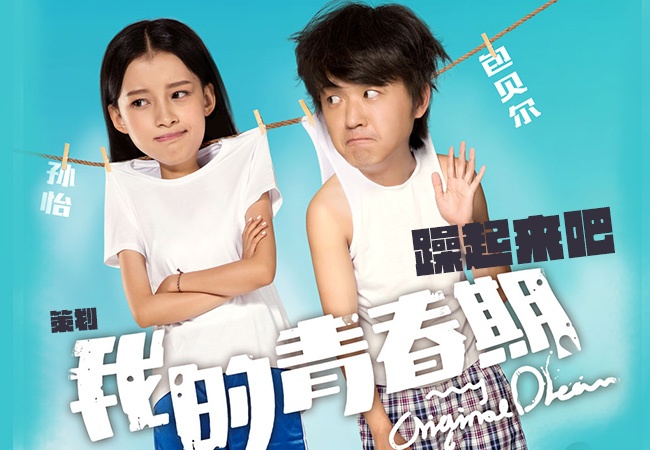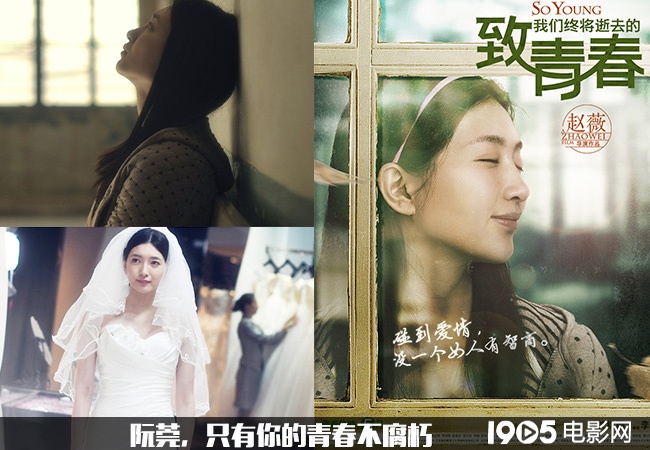
1905 movie network exclusive feature Extra, extra! Hao Jie’s "Sister Mei" will be shown at the Singles Festival. Who’s Hao Jie? What is a beautiful sister? Apart from "double 11" crazy buy buy buying or abusing single dog, does the annual "11.11" have a deeper connotation?
Hao Jie, born in 1981, is a young man with a movie dream. I started filming at the age of 30, and it took ten years for the film circle to meet Wanda, a rich man, this year.
Among them, it is Hao Jie’s debut, which once hit a hit rate of 20 million on the Internet. The film tells the story of the shame of old bachelors in rural areas. The sexual life of four old bachelors in the village has brought great ideological impact to young artists and academic people. Of course, this debut is naturally a niche work far from the public eye. The film "Single Man" won the jury award of the 11th Tokyo International Film Festival in 2011, the Asian Film Promotion Award of the Golden State International Film Festival in Korea and many other awards.
It is Hao Jie’s first attempt at cinema film. It was shortlisted in the new director competition unit of the 2012 San Sebastian International Film Festival in Spain, nominated by the 2012 China Film Directors Association as "Young Director of the Year" and awarded the "Asian Film Critics Alliance" award at the 49th Taiwan Province Golden Horse Film Festival in 2012. The film tells the story of an eight-year-old boy who is infatuated with his elder sister and makes a childhood vow of "I want to marry her".
In the movie, Tie Dan’s first love is Mei Jie. Outside the movie, in order to commemorate Hao Jie’s first love, this film was shown on Singles’ Day. This "My Adolescence" was originally named, can I get manic with a youth film this time?

In 2013, with 719 million yuan, it became the second domestic movie at the box office in that year. In the same year, it swept 539 million yuan. Zhao Wei and Chen Kexin recalled their nostalgic youth that year. Campus, love, nostalgia and other types of elements have become hot weapons in youth films.
After that, the banner of "nostalgia" stood still, and the girl’s white dress was still fluttering. In 2014, Hehe made 456 million yuan and 579 million yuan at the box office respectively. In 2015, 378 million yuan, 484 million yuan and 487 million yuan of youth films adapted from popular IP all achieved good box office results. It is simply a dark horse with wings, and it has taken off with a box office score of 1.435 billion yuan.
In the past two years, domestic youth films have been fierce. Nostalgic symbols and youthful masks seem to have a set of stable type routines: characters win by their face value; The plot must have abortion; Graphic visual image. The boudoir resentment in the name of youth in content. I don’t pay attention to the sense of history or pursue the sense of campus. It seems that it tells a story about memories of youth who is suspected to be born after 60, 70 and 80, but it also resonates with the post-90 s children and makes them cry.

"To Youth" not only started the nostalgia of youth films with a high box office, but also weaved a dream of "eternal youth". In the climax at the end of the film, Ruan Wan went to his first boyfriend’s appointment before marriage, and originally wanted to put an end to his youthful love affair, but it ushered in a death. Ruan Wan’s death shows that this is an era when even personal love can’t find a home. The "Immortality of Youth" she shouted was a denial of the value of youth.
Another youthful dream woven in To Youth is a realistic lament brought out by Chen Xiaozheng. Teenagers in their twenties make a huge choice between career and marriage, and accept the helplessness and cutting of real life, so this situation makes the audience feel the same? So looking back at the story of finding the first love is so earth-moving? Accepting the dilemma of reality is the biggest lie of this youthful dream.
Some of our youth films are compromise rather than rebellion, and most of them are "demoralized" because they belong to adolescence only in age and are finally shrouded in a sense of reality of minor injuries and feelings. In "You at the same table", after being refused a visa for Stanford twice, it was thrown out that "we can’t go back, and we lost to reality after all." In that year in a hurry, I miss those past, inexplicable lyricism and inexplicable sentimentality. "Left Ear" and "Gardenia Blossoms" have staged a cheap youth that throws life and sprinkles dog blood. What we see is a series of bitter wars of jealousness and jealousy. From "To Youth" to "You at the Same Table" and then to "In a hurry that year", the girls can’t finish the abortion, but they can’t see the surge of youth.
Mao Jian, a film critic, once sharply commented: "Most of these films have no youthful essence, and they can’t be compared with the’ youth films’ in the 1950s and 1960s, nor can they be compared with the youth films of Chen Kaige and Zhang Yimou. They are just like youth films. How youthful Leslie Cheung loves! Today’s youth films have lost their heroism a hundred years ago, their energy in the 1950s and 1960s, and even the "blood color" and "black passion" in previous Hong Kong films. Now, the narrative of "youth" is that "old money" laughs at "new money" and "new money" plays with "small money". Youth is no longer a seeder or a propaganda team. "
Next page: restricted "teenage spring dream" Well, this is an academic question.